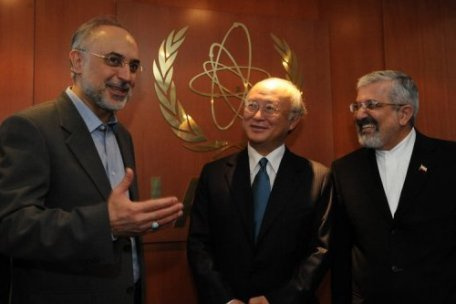Over-Reliance on the Non-Aligned Movement Is Misleading

In an interview with IRD, Seyyed Sadeq Kharrazi reviews the latest report by the IAEA Director General Yukia Amano and argues that in the current state of Iran's nuclear issue, Russia’s role will be decisive in dealing with the West: If Iran and Russia do not reach a common point, Moscow will lose its motivation for resisting against the West.
IRD: The latest report by the IAEA Director General raised a lot of debates. What is your overall evaluation?
SK: It can be reviewed from different viewpoints; first, unlike previous reports, from a ‘formal’ viewpoint, it is almost lengthy, consisting of two 10-page main pieces and a 4-page appendix which may be more important as it focuses on a critical issue addressed by many Western countries, the IAEA and the UN Security Council during recent years. Secondly, the attention paid by the international community has been exceptional in the history of Iran’s nuclear program. Thirdly, the content was similar to the previous report, evaluating Iran’s nuclear program in general. The likely military dimension of Iran's nuclear program is briefly discussed in the main body of the report, but extensively addressed in the appendix which tries to make the case clear by presenting some documents allegedly collected from various sources inside the country. A major portion of this section of the report is based on information provided by the US and Israel—material which has been frequently repeated in previous reports.
IRD: Why is the alleged military dimension of Iran's nuclear program that is highlighted in the report?
SK: In September, Mr. Amano stated that in the near future the members of the IAEA Board of Governors would be informed about the details of the likely military dimension of Iran's nuclear program. Since his remarks, the US and Israel tried to poison the international atmosphere, propagating that it was due time for disclosure of Iran’s nuclear military activities to make the world certain of Iran’s intentions in following a nuclear program. The latest report is meant to meet these demands. In fact, Amano did the same thing ElBaradei had refused to do, against pressure by the US. As is reflected in the WikiLeaks documents, Amano is inclined to cooperate with Washington. The White House chose this period for publishing the report deliberately, as it knew that it could be conducive to propose more sanctions in the UN Security Council after creating an anti-Iran atmosphere that will convince the Board of Governors to approve the declaration and to refer the case to the Security Council.
IRD: Before submission of the report there was plenty of anti-Iran propaganda in the West, claiming that new report would ‘reveal’ new aspects of Iran's nuclear program. Did the report confirm their claims?
SK: Many thought the report would be a game-changing factor as it would ‘disclose’ Iran's real intentions in pursuing a nuclear program and would lay the groundwork for approving another round of sanctions against Iran, but the IAEA’s report was totally unexpected for the experts. Iran has already clarified the points of ambiguity mentioned in the report, and Washington –which put forth allegations in the first place- and other members of the Board of Governors knew Iran's response to those questions. The question is why is the old information now publicized? Unbiased Western observers have questioned the point. Despite the initial anti-Iran atmosphere, questions on the quality of information presented in the report have been raised in the world’s political, media and academic circles, and it is interesting that they have all remained unanswered by the US and Israel.
IRD: Why did not the statement approved in the Board of Governors meet the Westerners’ expectations?
SK: As I mentioned, the pressure exerted by the US on Amano to prepare the report with such content was aimed to provide a ground to release a strong-worded statement in the Board of Governors and refer Iran's case to the Security Council to pass new sanctions. But the propaganda turned into an embarrassing political show and several countries such as Russia, China and the Non-Aligned Movement members openly criticized the director general’s report; and the content was thoroughly doubted in the Western countries. So it was not naturally expected that the Board would approve of a US-favored statement. The Americans had two options: approval of a statement that would face opposition by Russia and China, or approval of a watered-down statement supported by China and Russia. The US chose the second option, changing its position to ultimately satisfy two permanent members of the Security Council. That is why the tone of the approved statement is in discord with the intelligence provided by Amano’s report.
IRD: What is your prediction of future measures of the Board of Governors and the Security Council?

